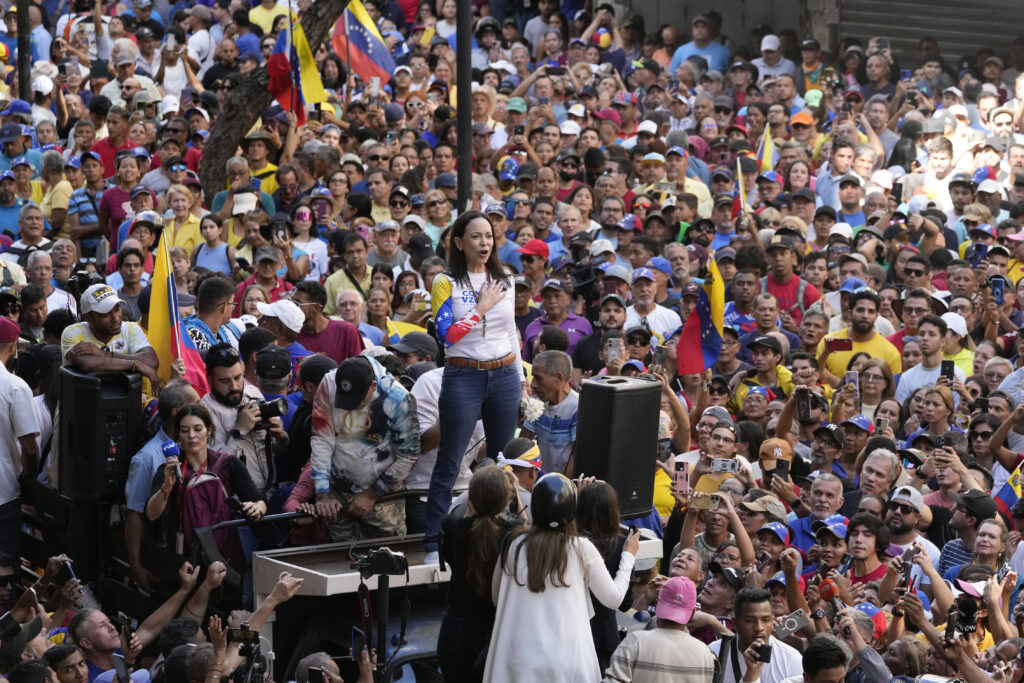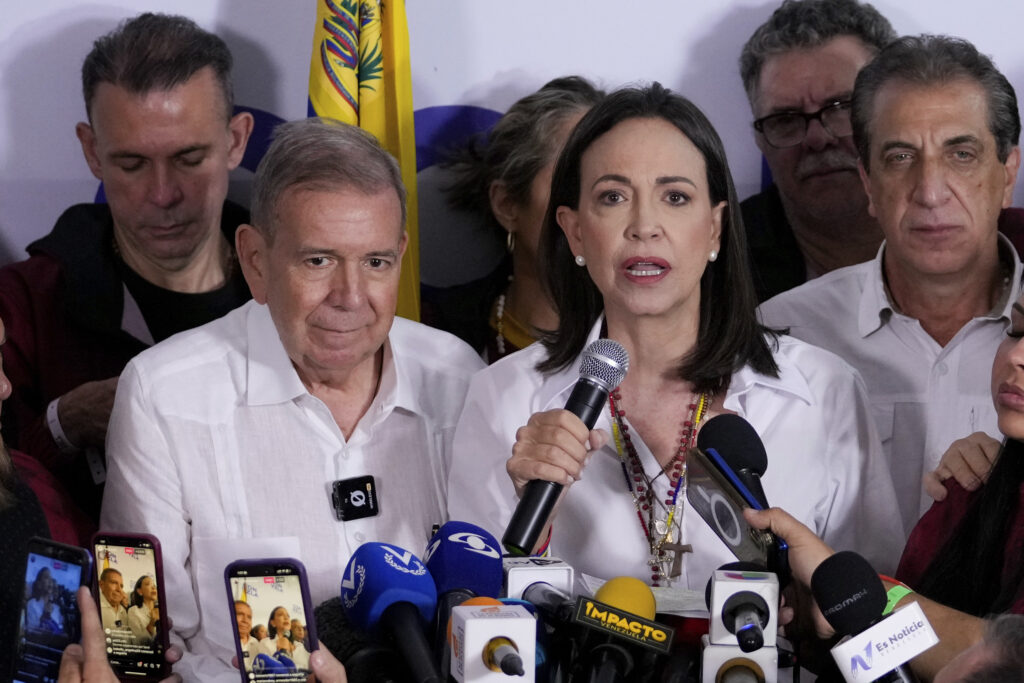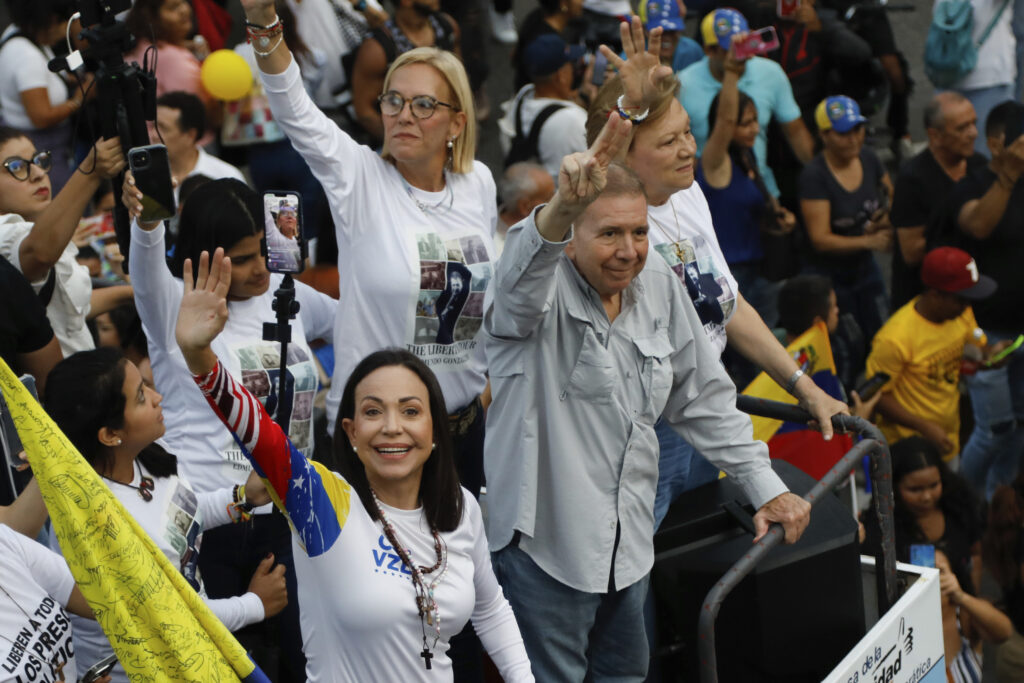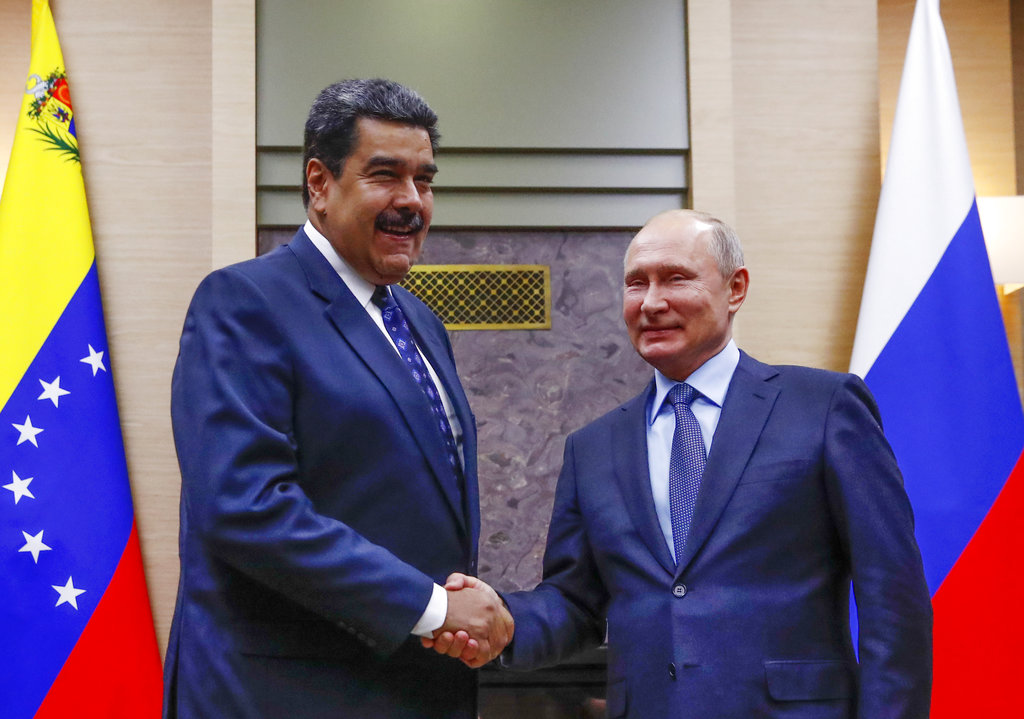Nicolás Maduro Dons the Sash of President of Venezuela — but Will It Become a Shackle?
Socialist dictator begins his third six-year term as Trump signals a hard line ahead.

President Maduro was inaugurated yesterday for a third, six-year term that could keep him in power until 2031. Behind the toy soldiers and sashes, however, the mood in official Caracas is one of nervousness — about the opposition and about President-elect Donald Trump.
In a week-long barnstorming campaign, the opposition presidential candidate, Edmundo González, flew to Washington from Buenos Aires. He visited half a dozen capitals where he was greeted as the true winner of last July’s election. Backed by voting station tally sheets that indicated he won by a two to one margin, Mr. González vowed to return to Venezuela this week to be sworn in as president.
In panic, the government papered Caracas’s international airport with wanted posters featuring his photograph and the offer of a $100,000 bounty. Then the government closed through Monday the land checkpoints and border air space with Venezuela’s two biggest neighbors, Brazil and Colombia.
Yesterday, opposition leader María Corina Machado posted a video on social media saying the moment was not right for his return. Recorded in hiding, she promised: “Edmundo will come to Venezuela to be sworn in as constitutional president of Venezuela at the right time.”

Now, the Maduro government focuses on a longer term challenge, how to deal with America’s incoming president. After the American election, Venezuela’s government wooed American oil executives with a proposal to trade oil for immigration controls. During the Maduro decade, economic collapse prompted about one quarter of the population to leave.
About 800,000 — 10 percent of the total flow — went to America. Yesterday, President Biden renewed for another 18 months the Temporary Protection Status for the estimated 600,000 Venezuelans who are in America without residency visas. After Mr. Maduro’s claim to have been re-elected, more Venezuelans told pollsters that the only solution is to emigrate.
Knowing Mr. Trump’s desire to deport undocumented aliens, Mr. Maduro’s aides are proposing to allow deportation flights to land in Venezuela. In return, Washington would lift sanctions on oil sales and investment. Indications are that this lobbying effort failed and that the incoming administration will take a hard line on Mr. Maduro.
“Venezuelan democracy activist Maria Corina Machado and President-elect Gonzalez are peacefully expressing the voices and the WILL of the Venezuelan people,” Mr. Trump posted Thursday on his platform Truth Social, minutes after Ms. Machado was arrested following a Caracas rally. “These freedom fighters should not be harmed, and MUST stay SAFE and ALIVE!”

The tweet came out as the opposition told news agencies that police officers had attacked Ms. Machado’s motorcade after her first appearance in public since August. Her motorcycle outrider was shot in the leg. Recounting the episode yesterday on social media, Ms. Machado said she was being taken to a military prison, when the police suddenly changed their plans. They stopped, recorded a “proof of life” video, and then released her.
If she was released by a tweet, it shows the Maduro regime’s edginess about the incoming administration in Washington. Two key posts are to go to Florida politicians who are Venezuela hawks. Mr. Trump has chosen Senator Rubio to be Secretary of State. For National Security Advisor, he has chosen Representative Mike Waltz, a former Green Beret who recently co-sponsored anti-Maduro legislation in the House.
On the international front, Mr. Maduro starts 2025 in isolation. The left-wing governments of his two big neighbors, Brazil and Colombia, sent only ambassadors to the inauguration. Absent was Chile, South American’s third major left-wing government. This week, President Gabriel Boric called Maduro a dictator.
Lashing out at Argentina’s libertarian president, Javier Milei, Mr. Maduro yesterday called him a “Zionist Nazi” and a “social sadist.”
In the same speech, Venezuela’s leader said he was the victim of a global conspiracy led by America and its “slave satellites” in Latin America.
In a parting shot to the Biden administration, he said: “We say to the outgoing North American government: ‘We won, they couldn’t defeat us.’”

The only foreign heads of state present for the inauguration were the presidents of Cuba, Miguel Diaz-Canel, and Nicaragua, Daniel Ortega, both allies of Mr. Maduro. Also in attendance was the speaker of Russia’s lower house of parliament, Vyacheslav Volodin.
Missing was a representative of Syria. Only last month, as opposition units approached Damascus, Mr. Maduro sent Bashar Al-Assad, then still president, a public message of support: “The government and people of Venezuela support Syria in its struggle against terrorism.”
Russia’s failure to help Syria seemingly bodes ill for Mr. Maduro in faraway Venezuela. Ms. Machado asked the Financial Times last week whether they did not think that Maduro’s generals “look in the mirror and see the generals which Assad left behind?”

To increase pressure on Mr. Maduro and his entourage, President Biden yesterday raised to $25 million the bounties for the arrest and conviction for drug trafficking of the Venezuelan president and for his interior minister, Diosdado Cabello. The administration also placed a new bounty of $15 million on the defense minister, Vladimir Padrino. Britain, Canada, and the European Union also on Friday expanded sanctions against Venezuelan officials.
As the inauguration ceremony was underway at Caracas, Secretary of State Blinken said in a statement: “The Venezuelan people and world know the truth — Maduro clearly lost the 2024 presidential election and has no right to claim the presidency.” Said Ms. Machado in a video address: “Today, Maduro didn’t put the sash on his chest. He put a shackle on his ankle, which will tighten every day.”

